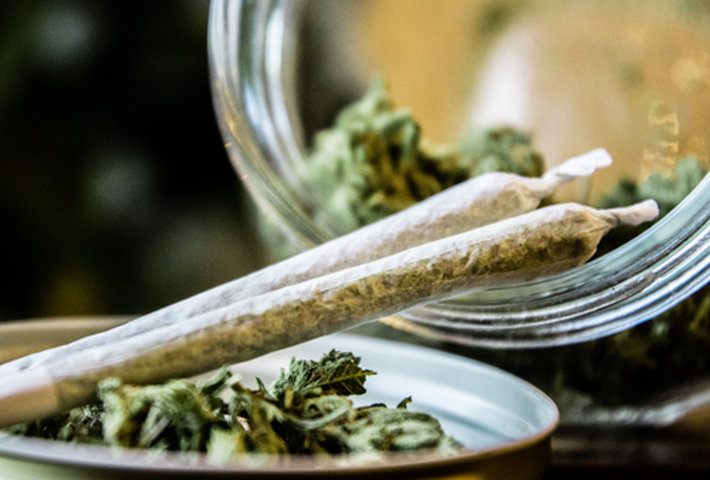Marijuana in the OK

OKLAHOMA, where the wind comes sweepin’ down the plain. And the wavin’ weed sure does stink. Wait… that’s not how that song goes—yet Oklahoma Governor Mary Fallin signed an executive proclamation placing State Question 788 on the June 26, 2018, primary election ballot. “Backers of this proposal to legalize medical marijuana followed procedures and gathered the more than 66,000 required signatures to submit the issue to a vote of the people,” said Fallin. “I’m fulfilling my duty as governor to decide when that election will occur this year.”
Marijuana in Oklahoma is illegal for all purposes, and Oklahoma is recognized for having some of the strictest laws on cannabis in the United States. Medical marijuana is not legal, but in April 2014 limited trials for the medical use of CBD oil were legalized. With this ballot measure, Oklahoma will legalize cannabis for “medical” purposes and make it legal for citizens who obtain a license. Therefore, let us understand the truth about cannabis as the research stands today. Below, we’ll answer some of the most commonly-asked questions about the drug known as marijuana and establish some facts and myths about the drug in question.
Is Marijuana Medicine?
Medicine is made when a laboratory extracts the medicinal compound, standardizes it (meaning that it will do the same thing every time), and doses it (a standardized amount the doctor prescribes). So, while components of marijuana plant has medicinal properties as a whole that doesn’t mean that one can just smoke the planet and expect health benefits.
The term “medical marijuana” is often applied to the whole unprocessed marijuana plant or its crude extracts, which are not recognized or approved as medicine by the U.S. Food and Drug Administration for any illness.
Because marijuana is sometimes marketed as a medicine, perception of the drug has changed. But the basic facts about marijuana haven’t changed just because it’s marketed as a “medicine.” And while the debate over legalization presses on, legal does not equal safe. Cigarettes are legal but there is no debate about the fact that smoking is a health risk. Alcohol is legal but look at the number of people battling alcohol addiction or illnesses associated with alcohol abuse.
Does Marijuana Affect Driving?
The use of marijuana significantly impairs judgment, coordination and reaction time—all skills needed to drive safely. Marijuana is the second most-commonly found psychoactive substance among drivers after alcohol. Marijuana users are 3 to 7 times more likely to have a car crash. Driving under the influence of cannabis is associated with a 92% increased risk of vehicular crashes. Important is the fact that such driving was associated with a 110% increase in fatal crashes. AAA reported that in the U.S. cannabis-involved fatalities increased from 8% in 2013 to 17% in 2014.
In Colorado, marijuana use increased significantly starting in 2009, and a study found that the proportion of drivers in fatal car crashes in Colorado testing positive for marijuana had risen from 5.9% in 2009 to 10% in 2011. In the State of Washington, fatal driving accidents have risen 122% between 2010 and 2014. In California, the percentage of drivers testing positive for marijuana that was involved in fatal car crashes rose from 9% in 2005 to 16.5% in 2014. California completely legalized cannabis this year and that percentage is expected to continue to rise.
Truth or Myth?
MYTH:“Marijuana is not a drug, it is a herb”: Yes, marijuana is a herb, which is defined as any plant with leaves, seeds, or flowers. Yet, marijuana is also a drug which is defined as a medicine, which has a physiological effect when ingested or otherwise introduced into the body. So, the next time you hear someone claiming the herb-only status of marijuana you should update them on its mutual status as both a herb and a drug.
FACT:The drug can affect more than your physical health. Studies in Australia in 2008 linked years of heavy marijuana use to brain abnormalities. This is backed up by earlier research on the long-term effects of marijuana, which indicate changes in the brain similar to those caused by the long-term abuse of other major drugs. And a number of studies have shown a connection between continued marijuana use and psychosis.
MYTH:“Marijuana cures cancer”: No, marijuana doesn’t cure cancer, and appears that physicians caring for cancer patients in the United States who recommend medicinal Cannabis do so predominantly for symptom management, such as lack of appetite.
FACT:Marijuana smoke contains 50% to 70% more cancer-causing substances than tobacco smoke. One major research study reported that a single cannabis joint could cause as much damage to the lungs as up to five regular cigarettes smoked one after another. Long-time joint smokers often suffer from bronchitis, an inflammation of the respiratory tract.
FACT:Cannabis is one of the few drugs that cause abnormal cell division, which leads to severe hereditary defects. A pregnant woman who regularly smokes marijuana or hashish may give birth prematurely to an undersized, underweight baby. Studies also suggest that prenatal (before birth) use of the drug may result in birth defects, mental abnormalities and increased risk of leukemia (cancer of the bone marrow) in children.
People take drugs to get rid of unwanted situations or feelings. Marijuana masks the problem for a time (while the user is high). When the “high” fades, the problem, unwanted condition or situation returns more intensely than before. The user may then turn to stronger drugs since marijuana no longer “works.”
If you or someone you know suffer from drug or alcohol addiction contact Narconon Arrowhead which is Narconon’s leading drug rehabilitation center for nearly half a century. Narconon has proven time and again that if a person can identify and overcome the initial, underlying problems that lead to their addiction, they can ultimately regain their self-respect and self-control. Call us.
Sources:
- https://www.cancer.org/
- http://www.narcononarrowhead.org/drug-abuse/
- https://www.healthline.com/health-news/does-marijuana-increase-risk-of-vehicle-crashes
- https://www.denverpost.com/2014/05/15/more-colorado-drivers-in-fatal-crashes-positive-for-pot-study-says/
- http://newsroom.aaa.com/2016/05/fatal-road-crashes-involving-marijuana-double-state-legalizes-drug/
- https://www.ncbi.nlm.nih.gov/pmc/articles/
- http://teratology.org/pubs/ts_primer/TeratologyBodyWeb10_11.pdf


